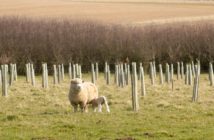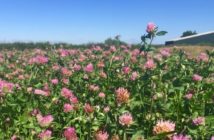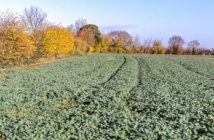DSV’s new Crocodile CR is the is the highest yielding clubroot resistant oilseed rape to join the AHDB Recommended List by a significant margin, says the company’s Mike Farr.
“With a seed yield of 106% of control in the 2020/21 RL, Crocodile right up there with the very best mainstream hybrid oilseed rapes in terms of outright performance.
“It convincingly outyields the other recommended clubroot resistant varieties, by as much as 6% points in some cases, making it the perfect choice for growers in regions where the condition is becoming an increasing problem.”
Spread of clubroot across the country is being driven by the tighter arable rotations used by growers in recent years, an increasing number of large mixed farming operations and greater use of brassica elements in cover crops, he explains.
“2019 saw a 20% increase in plantings of clubroot resistant varieties over 2018 and this rate of increase is likely to continue over the next few years.
“Spores from previous crops, cruciferous weeds, kale, turnips, swedes and mustard, frequently used as cover crops, can survive in the soil for many years.
“Clubroot can even be spread from the manure of animals fed on infected produce and once present, it can easily reduce oilseed rape yield by 50% so it’s something that needs taking seriously.”
Crocodile CR means growers don’t have to suffer the traditional yield penalties that come with choosing a clubroot resistant variety, he says.
“Crocodile is a game-changer. As well as its yield advantage, it’s got the same 45 day rapid establishment period of many DSV top performers and is also quick to get going in the spring, rapidly developing lower buds.
“It also features a really strong agronomic package with 8s for resistance to lodging and stem stiffness and a 6 for light leaf spot.”
Producers need to be aware of the growing implications of clubroot, particularly if they’re on mixed farms or have historically used tight rotations, Mike Farr believes
“Acidic soils and warm, wet weather can increase incidence of the disease with more variable growing conditions and increased numbers of flooding events, as experienced by many recently, adding to the problem.
“Longer term, lengthening rotations is the most sustainable long-term strategy for managing clubroot, but Crocodile CR can do much to deliver consistent yields and performance where a problem is already actively affecting growth.”




